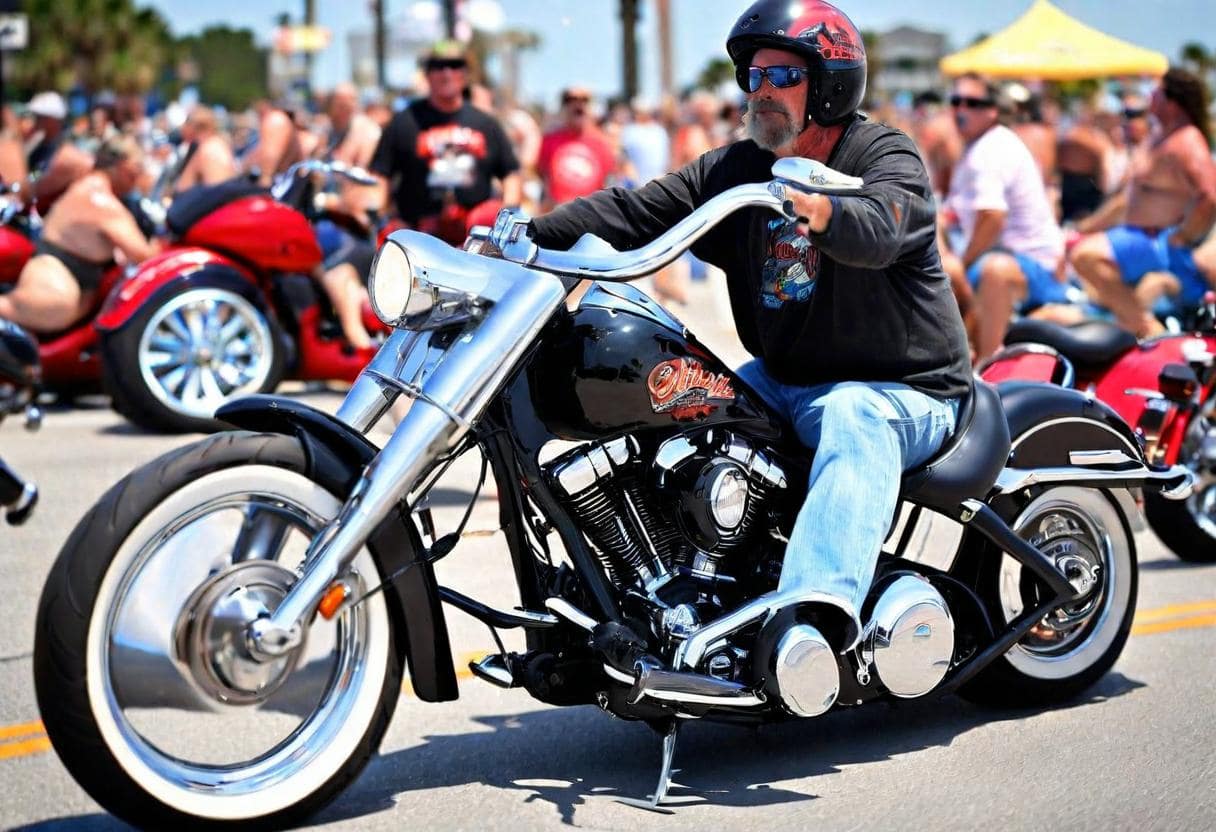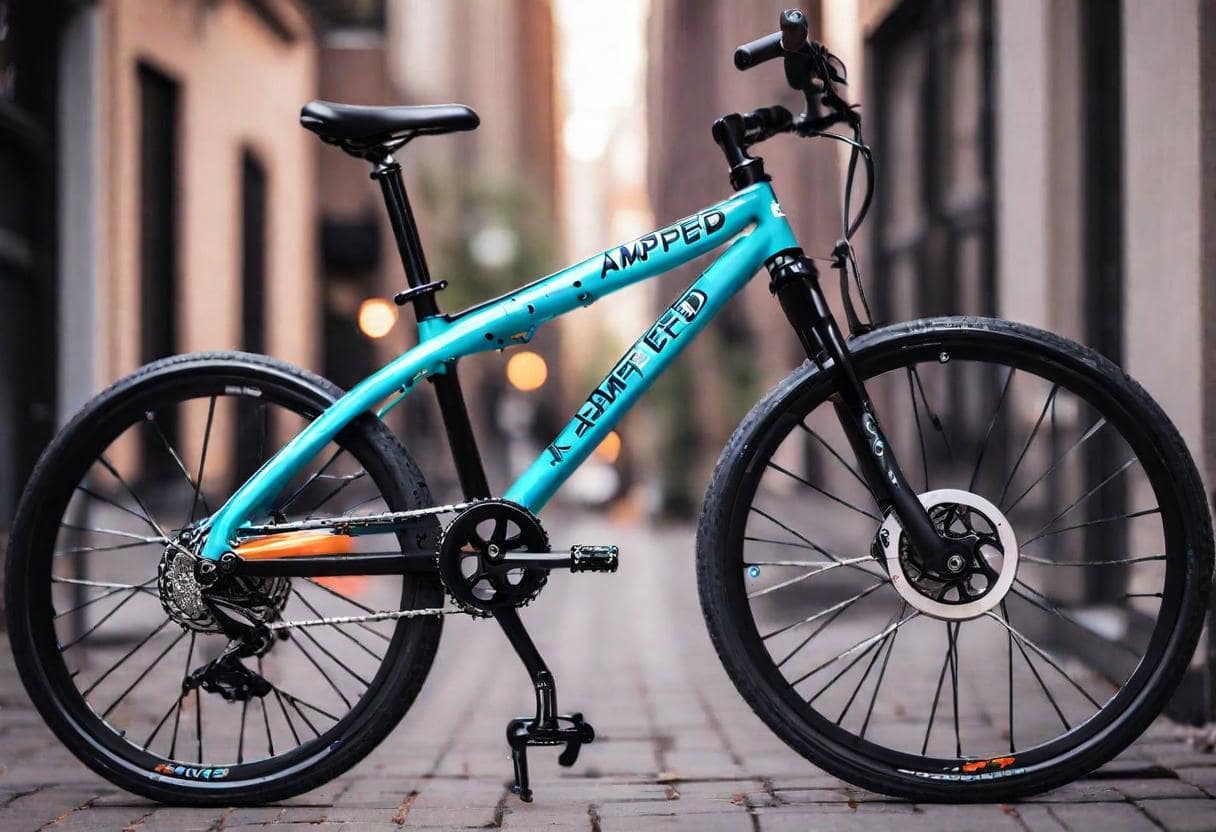If you’re in possession of a motorcycle without a title or have encountered issues
obtaining one, you might be wondering about the steps to secure a new title. Whether you’ve lost your title, purchased a motorcycle without one, or need to transfer ownership, the process can seem daunting. No need to worry, as we are here to help you every step of the way.
Introduction: Understanding the Importance of Motorcycle Titles
Before delving into the process of how to get a new title for a motorcycle, let’s first understand why motorcycle titles are crucial. A title serves as legal proof of ownership of your motorcycle. It contains essential information about the vehicle, including its identification number, make, model, and owner details. Without a title, proving ownership becomes challenging, and you may encounter obstacles when selling, registering, or insuring your motorcycle.
What Is a Motorcycle Title?
In simple terms, a motorcycle title is a legal document that establishes ownership of the vehicle. It is issued by the state’s Department of Motor Vehicles (DMV) or equivalent authority. The title contains pertinent information about the motorcycle and its owner, serving as a vital piece of documentation for various transactions and legal purposes.
Reasons for Obtaining a New Title
Several circumstances may warrant the need for a new title:
Lost or Stolen Title:
If you’ve misplaced your title or it has been stolen, obtaining a new one is imperative to prove ownership of your motorcycle.
Purchasing a Motorcycle Without a Title:
Buying a motorcycle without a title is not uncommon, especially in private sales or auctions. In such cases, acquiring a new title is essential to legally own and operate the motorcycle.
Title Transfer Due to Ownership Change:
When transferring ownership of a motorcycle, whether through sale, gift, or inheritance, a new title reflecting the change in ownership is necessary.
Steps to Get a New Title for a Motorcycle
Getting a new title involves several steps, which may vary depending on your state’s regulations. Here’s a general overview of the process:
Research State-Specific Requirements: Begin by familiarizing yourself with the title application process in your state. Visit the official website of the DMV or contact them directly to understand the requirements and procedures.
Gather Necessary Documents: Collect all the documents required to apply for a new title. This typically includes proof of ownership (e.g., bill of sale, vehicle identification number), identification documents, and any additional forms specified by the DMV.
Complete Application Forms: Fill out the necessary application forms accurately and legibly. Provide all requested information and double-check for errors before submission.
Pay Fees: Be prepared to pay the applicable fees for obtaining a new title. Fee amounts vary by state and may depend on factors such as the vehicle’s age and type.
Submit Application to the Appropriate Authority: Once you’ve completed the paperwork and paid the fees, submit your application to the designated authority, such as the DMV or a local title office.

Dealing with Title Issues
In addition to the standard process, you may encounter specific issues related to titles that require attention:
Handling Title Discrepancies:
If there are discrepancies or errors on the title or supporting documents, you’ll need to address them to ensure a smooth application process.
Resolving Lienholder Issues:
If there’s a lien on the motorcycle due to an outstanding loan, you’ll need to obtain a lien release from the lender before transferring the title.
Addressing Salvage Title Concerns:
If the motorcycle has a salvage title due to previous damage or repairs, additional steps may be necessary to obtain a new title.
Alternatives to Getting a New Title
In some cases, obtaining a new title through traditional means may not be feasible. Here are some alternative options:
Bonded Titles:
A bonded title, also known as a surety bond title, may be obtained when traditional methods are unavailable. It involves purchasing a surety bond to protect against any potential claims to the vehicle’s ownership.
Title Recovery Services:
There are companies that specialize in assisting individuals with lost or missing titles. These services can help navigate the process of obtaining a new title more efficiently.
Legal Assistance:
If you encounter legal complexities or challenges during the title acquisition process, seeking legal counsel from an attorney experienced in vehicle title matters may be beneficial.
Tips for a Smooth Title Transfer Process
Navigating the title transfer process can be overwhelming, but the following tips can help streamline the process:
- Double-Check Paperwork: Ensure all forms are filled out accurately and completely to avoid delays or rejections.
- Be Patient: Title processing times may vary, so patience is key. Follow up with the appropriate authority if necessary, but avoid unnecessary stress.
- Seek Professional Help if Needed: If you’re unsure about any aspect of the title transfer process, don’t hesitate to seek assistance from professionals, such as title agencies or legal experts.

Common Mistakes to Avoid
To prevent complications during the title acquisition process, steer clear of these common mistakes:
- Incorrectly Filling Out Forms: Providing inaccurate or incomplete information on application forms can lead to delays or rejections.
- Missing Deadlines: Be mindful of deadlines for submitting required documents or completing necessary steps. Missing deadlines could result in additional fees or complications.
- Ignoring Title Regulations: Familiarize yourself with your state’s title regulations and comply with them diligently to avoid legal issues down the road.
Understanding Title Fraud
Title fraud occurs when individuals manipulate or falsify information related to vehicle titles for unlawful purposes. Understanding the types of title fraud and taking preventive measures can safeguard against potential fraud schemes:
- Types of Title Fraud: Title washing, odometer tampering, and VIN cloning are among the common types of title fraud schemes.
- Ways to Protect Against Title Fraud: Conduct thorough research before purchasing a motorcycle, verify the vehicle’s history through reputable sources, and scrutinize all documentation for signs of tampering or forgery.
Can you register a motorcycle in NJ without a title?
In New Jersey, registering a motorcycle without a title can be a challenging endeavor. The title serves as proof of ownership, and without it, the process becomes significantly more complex. However, there are certain circumstances where it may be possible to register a motorcycle without a title, albeit with additional steps and documentation.
An alternative approach involves pursuing a bonded title, which offers a possible solution to obtaining legal ownership of the motorcycle. A bonded title, also known as a surety bond title, involves purchasing a surety bond to compensate for any potential claims to the vehicle’s ownership. This route typically requires providing evidence of ownership, such as a bill of sale or a notarized affidavit, along with the application for the bonded title.
Another possibility is to explore title recovery services. These specialized companies assist individuals in obtaining lost or missing titles by navigating the bureaucratic processes on their behalf. While these services come at a cost, they can often expedite the title acquisition process and alleviate much of the burden from the owner.
It’s essential to note that registering a motorcycle without a title may vary in feasibility depending on the specific circumstances and state regulations. Additionally, it’s crucial to ensure compliance with all legal requirements and to thoroughly research the options available before proceeding with the registration process. Consulting with legal experts or professionals experienced in vehicle title matters can provide valuable guidance and assistance in navigating this complex process.

What do I need to transfer a motorcycle title in NJ?
To transfer a motorcycle title in New Jersey (NJ), several documents and steps are typically required to ensure a smooth and legal process. Here’s what you’ll need:
Certificate of Title: The current owner must provide the original certificate of title, properly endorsed to the new owner. This document serves as proof of ownership and is essential for the transfer process.
Bill of Sale: A bill of sale is a legal document that records the transfer of ownership from the seller to the buyer. It should include details such as the names and addresses of both parties, the motorcycle’s description (make, model, year, VIN), the sale price, and the date of sale.
Odometer Disclosure Statement: Federal law requires sellers to disclose the motorcycle’s mileage at the time of sale. Both the seller and buyer must sign an odometer disclosure statement, indicating the accuracy of the mileage reading.
Application for Certificate of Title: The buyer must complete an application for a certificate of title (Form OS/SS-7) from the New Jersey Motor Vehicle Commission (MVC). This form includes information about the motorcycle, the buyer, and any lienholders.
Proof of Identity: Both the buyer and seller must provide valid identification, such as a driver’s license or state-issued ID, to verify their identities.
Proof of Insurance: Before transferring the title, the buyer must present proof of insurance for the motorcycle. This ensures that the vehicle is covered in the event of an accident or other unforeseen circumstances.
Payment of Fees: There are fees associated with transferring a motorcycle title in NJ, including a title transfer fee and any applicable taxes. The exact amount varies depending on factors such as the motorcycle’s value and the county where the transaction takes place.
Once all the necessary documents are assembled and fees are paid, the buyer and seller can proceed with the title transfer process. It’s essential to ensure that all forms are filled out accurately and legibly to avoid any delays or complications. After completing the transfer, the new owner will receive a new certificate of title in their name, officially confirming their ownership of the motorcycle.
Does a motorcycle need a title in NH?
Yes, in New Hampshire (NH), motorcycles typically require a title for registration and ownership verification. A title serves as legal proof of ownership and is essential for conducting various transactions related to the motorcycle, such as selling, transferring ownership, or registering the vehicle. Without a title, proving ownership becomes challenging, and individuals may encounter difficulties when attempting to register or insure their motorcycle. Therefore, obtaining a title is crucial for ensuring compliance with state regulations and facilitating the proper documentation of ownership for motorcycles in New Hampshire.
Conclusion
Obtaining a new title for your motorcycle is a crucial step in establishing legal ownership and ensuring compliance with state regulations. By following the outlined steps, addressing potential issues proactively, and staying informed about title-related matters, you can navigate the process with confidence and peace of mind.
FAQs
User How do I change the title on my motorcycle in NY?
To change the title on your motorcycle in New York (NY), you’ll need to follow these steps:
- Obtain the current title from the seller, properly signed and dated.
- Complete a Vehicle Registration/Title Application (Form MV-82) available from the New York State Department of Motor Vehicles (DMV).
- Provide proof of identity and residency, such as a valid driver’s license and utility bill.
- Submit the application, along with the current title, to your local DMV office.
- Pay the required fees for title transfer.
- Once processed, you’ll receive a new title in your name.
Can I register a bike without a title in NY?
In New York, registering a bike without a title can be challenging. The title serves as proof of ownership, and without it, the registration process becomes significantly more complex. However, in certain circumstances, such as purchasing a bike from a seller who has lost the title, there may be options available. You may need to apply for a bonded title or explore other avenues to establish ownership legally before registering the bike.
How to get a title for a motorcycle with a bill of sale in NY?
If you have a motorcycle without a title but possess a bill of sale, you can still attempt to obtain a title in New York. Here’s what you can do:
- Gather all relevant documentation, including the bill of sale, proof of identity, and any other supporting documents.
- Contact the New York DMV to inquire about the process for obtaining a title without the original title document.
- You may need to complete additional paperwork and provide evidence of ownership, such as an affidavit of ownership or a surety bond.
- Submit the required documents and fees to the DMV for processing.
- Once approved, you’ll receive a new title for your motorcycle.
Do you need a title for a motorcycle in NY?
Yes, in New York, motorcycles typically require a title for registration and ownership verification. A title serves as legal proof of ownership and is necessary for various transactions, including selling, transferring ownership, or registering the vehicle. Without a title, proving ownership becomes challenging, and individuals may encounter difficulties when attempting to register or insure their motorcycle. Therefore, obtaining a title is crucial for compliance with state regulations and ensuring proper documentation of ownership for motorcycles in New York.







